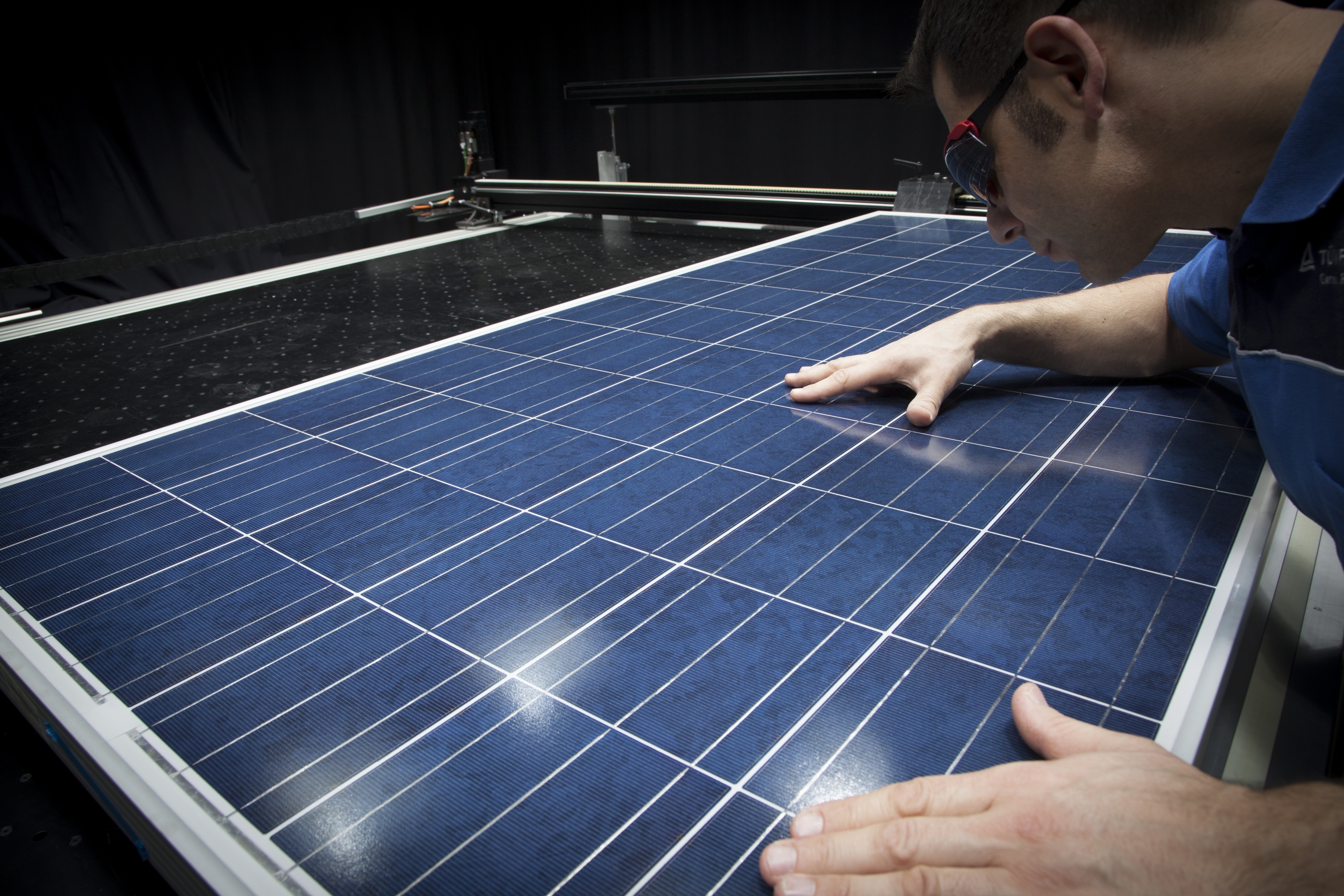Research team »Fidelitas« develops quick test for solar modules
Higher yields of photovoltaic modules and new possible uses for solar energy in special climates through the development of new test methods – with these objectives, TÜV Rheinland, the Institute for Solar Energy Research Hameln and the Fraunhofer Center for Silicon Photovoltaics CSP in Halle have joined together in the >>Fidelitas<< project. The research team unlocks new possibilities for assessing the reliability of solar modules and their components.

Low production costs and high efficiency are just as decisive for an efficient and high rate-of-return photovoltaics system as the life of the modules. The latter depends on the often extreme outdoor conditions during operation. Modules must, for example, defy the sand of the desert, withstand the moisture of the tropics and bear hailstones and snow loads.
The project partners simulate these conditions in their laboratories and climatic test chambers in order to deduce optimized material combinations. Special glass, coatings or even the reliability of the laminate bonding must satisfy high standards, in order to withstand the particular requirements of the target markets. Practical test and investigation approaches for the adaptation and development and models are just as much on the agenda as the development of quick tests and clarifying the causes of failure.
Such reliability analyses are elemental for further growth of the photovoltaics market: Investors, manufacturers want to know how long their modules will last, what yields they can achieve over the years or to what defects they may be susceptible. At the Fraunhofer CSP the main focus is on the question of long-term stability. »There are two large challenges«, says Dr. Matthias Ebert, who is responsible for the project at the Fraunhofer CSP. »On the one hand, over a long period of operation, very different problems can occur in the modules, for example, cell cracks, defects at contact or weakpoints in the encapsulation materials. All this can affect the performance. On the other hand, photovoltaics has developed rapidly. Today completely different materials and technologies are used compared to those a few years ago. We also have a large variety to deal with there too.«
The consortium offers to test the products of module, component and material manufacturers as part of the project. In this way, manufacturers have the possibility of advancing the development of their products. The »Fidelitas« contacts will also be present at the Intersolar trade fair from 22-24 June 2016 in Munich, at Stand 470 in Hall A3.